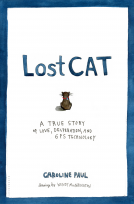Heads in Beds: A Reckless Memoir of Hotels, Hustles, and So-Called Hospitality

by
Jacob Tomsky
Doubleday
Hardcover
From the
publisher website:
In the tradition of Kitchen Confidential and Waiter Rant, a rollicking, eye-opening, fantastically indiscreet memoir of a life spent (and misspent) in the hotel industry.
Jacob Tomsky never intended
to go into the hotel business. As a new college graduate, armed only
with a philosophy degree and a singular lack of career direction, he
became a valet parker for a large luxury hotel in New Orleans. Yet,
rising fast through the ranks, he ended up working in “hospitality” for
more than a decade, doing everything from supervising the housekeeping
department to manning the front desk at an upscale Manhattan hotel.
He’s checked you in, checked you out, separated your white panties from
the white bed sheets, parked your car, tasted your room-service meals,
cleaned your toilet, denied you a late checkout, given you a wake-up
call, eaten M&Ms out of your minibar, laughed at your jokes, and
taken your money. In Heads in Beds he pulls back the curtain to expose the crazy and compelling reality of a multi-billion-dollar industry we think we know.
Heads in Beds
is a funny, authentic, and irreverent chronicle of the highs and lows
of hotel life, told by a keenly observant insider who’s seen it all.
Prepare to be amused, shocked, and amazed as he spills the unwritten
code of the bellhops, the antics that go on in the valet parking garage,
the housekeeping department’s dirty little secrets—not to mention the
shameless activities of the guests, who are rarely on their best
behavior. Prepare to be moved, too, by his candor about what it’s like
to toil in a highly demanding service industry at the luxury level,
where people expect to get what they pay for (and often a whole lot
more). Employees are poorly paid and frequently abused by coworkers and
guests alike, and maintaining a semblance of sanity is a daily
challenge.
Along his journey Tomsky also reveals the secrets of
the industry, offering easy ways to get what you need from your hotel
without any hassle. This book (and a timely proffered twenty-dollar
bill) will help you score late checkouts and upgrades, get free stuff
galore, and make that pay-per-view charge magically disappear. Thanks to
him you’ll know how to get the very best service from any business
that makes its money from putting heads in beds. Or, at the very least,
you will keep the bellmen from taking your luggage into the
camera-free back office and bashing it against the wall repeatedly.

